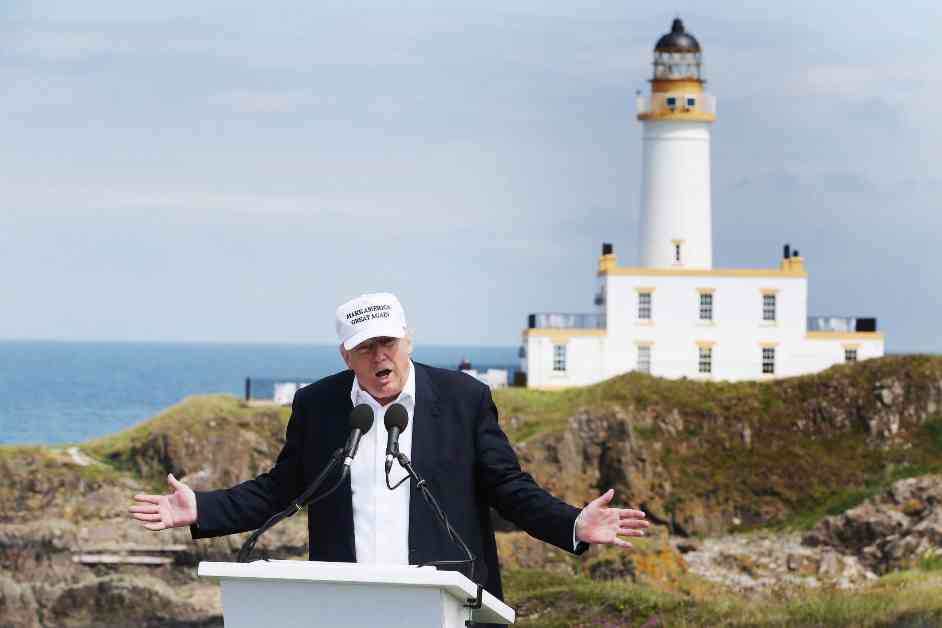US presidential candidate Donald Trump has responded to First Minister John Swinney’s endorsement of his Democratic rival Kamala Harris, calling the move “appalling”. The Republican nominee shared his thoughts on Scottish independence earlier this month, stating that the UK “should always stay together”. This statement resurfaced this week, prompting Mr. Swinney to urge Americans to vote for Ms. Harris in the upcoming presidential election.
In response to Mr. Swinney’s endorsement, the SNP leader explained that his support for Ms. Harris was not solely based on Mr. Trump’s opposition to Scottish independence. However, this statement received a rebuke from Mr. Trump’s company, which owns golf courses in both Turnberry in South Ayrshire and Balmedie in Aberdeenshire.
Sarah Malone, executive vice president of Trump International, Scotland, highlighted the Trump family’s significant contributions to the Scottish economy, stating that they have poured hundreds of millions of dollars into the country and have generated economic growth. She emphasized that around six hundred people, mostly Scottish, are employed directly by Trump businesses, with many other local and national businesses benefiting from supplying services to their resorts.
It is worth noting that Mr. Trump’s mother, Mary Anne MacLeod, was born on the Isle of Lewis and had a Gaelic-speaking background before moving to the United States where she married Fred Trump. Additionally, a legal patent for a Trump family crest was approved after The Court of the Lord Lyon warned Mr. Trump in 2008 against using a banner of his own design at his Aberdeenshire course, citing a law dating back to 1672.
Overall, the recent exchange between Mr. Trump and Mr. Swinney highlights the intersection of politics and business, as well as the personal connections that individuals have to different regions. It underscores the complexities of international relations and the impact of political endorsements on public figures’ reputations. As the US presidential election approaches, these interactions between global leaders and local officials will continue to shape public discourse and influence voter perceptions.
































